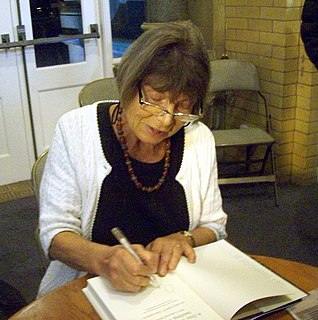A Quote by Ian Mckellen
Related Quotes
Men's memoirs are about answers; women's memoirs are about questions. Most male authors want to look good in their memoirs and have a place in posterity, while most women know that posterity is what happens when you no longer care. Women want to connect with others here and now; they couldn't care less about legacy!
The best advice I can give on this is, once it's done, to put it away until you can read it with new eyes. Finish the short story, print it out, then put it in a drawer and write other things. When you're ready, pick it up and read it, as if you've never read it before. If there are things you aren't satisfied with as a reader, go in and fix them as a writer: that's revision.



































